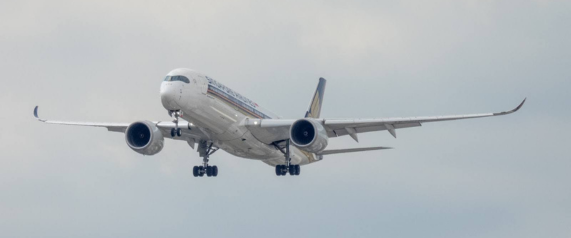Delta and Aeromexico to End Joint Venture in a New Chapter in Air Travel
The U.S. Department of Transportation (DOT) has issued a final order requiring Delta Air Lines and Aeroméxico to dissolve their joint venture (JV) by January 1, 2026, citing significant antitrust and competition concerns in the air travel market.
Since 2016, the joint venture between these two carriers has held antitrust immunity, enabling them to coordinate schedules, pricing, and capacity along cross-border routes. The DOT, however, found that conditions underpinning this immunity no longer hold, primarily because of policies in Mexico that distort competition.
Specifically, the government’s reallocation of airport landing “slots” and its mandate to shift cargo operations from Mexico City’s Benito Juárez Airport to the newer Felipe Ángeles Airport have raised flags. These actions are perceived as giving Delta and Aeroméxico an unfair competitive advantage over other airlines.
Delta and Aeroméxico have expressed disappointment. They argue that the JV brought important benefits to travellers: improved connectivity, more route options, and cost efficiencies that translated into consumer savings. Delta, in its response, warned of repercussions, including lost tourism, job impacts, and less favorable options for flyers.
Still, the DOT emphasizes that codesharing, frequent-flyer program reciprocity, and some cooperative marketing will be able to continue, even after the formal dissolution. What must end is the kind of integrated, immune partnership that allowed setting prices, sharing revenues, and coordinating capacity under antitrust protection.
The regulatory decision rests heavily on the U.S.-Mexico “Open Skies” agreement and related bilateral aviation rules. The DOT determined that Mexico’s policies have violated elements of this agreement by limiting fair access and by creating regulatory unpredictability that disadvantages U.S. carriers and competitive entry. Moreover, the DOT found that the claims made by the airlines regarding routes “at risk” in the event of a JV dissolution may have been overstated; many of those routes are leisure-oriented and are primarily served by Delta anyway.
For air travellers, the end of the JV is likely to bring changes. Fares, schedules, and capacity coordination could become less seamless. Passengers may see fewer jointly offered or optimized routes, or less flexibility in scheduling between the two airlines.
Some routes currently benefiting from coordinated planning might revert to more independent operations, perhaps with less frequent or less well-timed connections. Still, since specific cooperative arrangements, such as frequent flyer partnerships and codeshares, will continue, the impact won’t be a sudden disruption; instead, it will be a gradual shift.
From a broader perspective, the decision underscores the scrutiny regulatory bodies are applying to cross-border airline alliances. The DOT’s action underscores that joint ventures must not just offer benefits in theory, but also work under market conditions that are fair, transparent, and consistent with international agreements.
As governments around the world assert more oversight on airline slot allocations, infrastructure policy, and protection of domestic competition, airlines engaging in air travel partnerships will need to be increasingly conscious of both regulatory risk and the public interest.
The order to dissolve the Delta-Aeroméxico joint venture marks a significant turning point in U.S.-Mexico aviation relations. While the full impacts on consumers, employees, and route structures will take time to unfold, what’s clear is that the age of deeper regulatory scrutiny in air travel is here, especially for cross-border cooperation.



